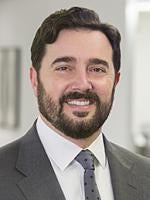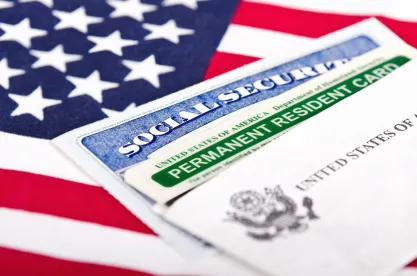On August 12, 2020, the U.S. State Department issued new guidance (“State Department Guidance”) on parameters for National Interest Exceptions to Presidential Proclamation 10052. As our previous post outlined, Proclamation 10052 suspended U.S. entry for certain nonimmigrants on H-1B (specialty occupation), H-2B (temporary workers), L-1 (intracompany transferees), and J-1 (exchange visitors participating in the intern, trainee, teacher, camp counselor, au pair, or summer work travel programs) visas through the end of 2020, along with their dependent spouses or children on H-4, L-2, or J-2 visas. It also extended Proclamation 10014, suspending U.S. entry for certain immigrant visa applicants (would be lawful permanent residents), through December 31, 2020.
This post analyzes the new State Department Guidance and its potential effect on visa applicants and those seeking a National Interest Exception (NIE) to Presidential Proclamation 10052.
Background on Proclamation 10052
The text of Proclamation 10052, as clarified by a subsequent amendment, stated it would only apply to those who were:
- Outside the United States on the effective date of the Proclamation (June 24, 2020);
- Did not hold a valid H-1, H-2, L-1 or J-1 nonimmigrant visa and pursuant to which the foreign national is seeking entry, that is valid on the effective date of this proclamation; AND
- Did not hold an official travel documents other than a visa (e.g., transportation letter, boarding foil, or advance parole document).
In addition, Proclamation 10052 exempted the following individuals:
- U.S. lawful permanent residents;
- Spouses and children of U.S. citizens;
- Foreign nationals seeking entry for labor or services “essential to the United States food supply chain;” and
- Foreign nationals whose entry would “be in the national interest as determined by the Secretary of State, the Secretary of Homeland Security” (aka a “National Interest Exception/NIE”).
To many, including the government agencies charged with implementing these Proclamations, the scope of the exceptions and exemptions has been far from clear. As U.S. Embassies and Consulates across the globe recently commenced a phased resumption of routine visa services, their applications of the Proclamations have been inconsistent. Prior State Department guidance was inconsistent and haphazard, provided via tweets and public speeches at immigration attorney conferences. The new State Department newly interprets the scope of the Proclamation and enumerates specific parameters and examples for NIE categories.
Who is Exempt and What about Visa Renewals?
Someone who is exempt from the Proclamation need not worry about qualifying under an NIE. Per the new State Department Guidance, “[t]he Proclamation does not apply to applicants who were in the United States on the effective date of the Proclamation (June 24), or who had a valid visa in the classifications mentioned above (and plans to enter the United States on that visa), or who had another official travel document valid on the effective date of the Proclamation.”
Further, the State Department Guidance appears to confirm that these exempt individuals can renew an expired or expiring visa prior to December 31, 2020 (the current expiration date of Proclamation 10052): “If an H-1B, H-2B, L-1, or J-1 non-immigrant is not subject to the Proclamation, then neither that individual nor the individual’s spouse or children will be prevented from obtaining a visa due to the Proclamation.” As shown below, the State Department Guidance also creates specific exceptions under the H-1B, L-1A, and L-1B visa categories for individuals returning to the same U.S. position that they held previously, adding an extra layer of apparent protection for anyone seeking to renew an H-1B, L-1A, or L-1B visa in 2020. However, it remains to be seen how Consulates interpret the above during the coming months.
Who Qualifies for a National Interest Exception?
The State Department Guidance lays out specific requirements for NIE applicants in each of the nonimmigrant categories subject to Proclamation 10052. It is important to note that the NIE rules for one visa may not apply to those for another, so careful consideration is required when submitting an NIE request.
H-1B Applicants:
- Who are seeking to resume ongoing employment in the United States in the same position with the same employer. [The guidance invites Consular officers to refer to Part II, Question 2 of the approved Form I-129 to determine if the applicant is continuing in “previously approved employment without change with the same employer.”];
- Who are technical specialists, senior level managers, and other workers whose travel is necessary to facilitate the immediate and continued economic recovery of the United States. An H-1B applicant may qualify under this category when at least two of the following five indicators are present:
-
- The petitioning employer has a continued need for the services or labor to be performed by the H-1B nonimmigrant in the United States. The guidance favors situations where the Labor Condition Application (LCA) was approved by DOL during or after July 2020 as an indicator of the petitioner’s need for the H-1B worker. For LCAs approved by DOL before July 2020, this indicator is only met if the consular officer is able to determine a continuing need of petitioned workers with the U.S. employer. Regardless of when the LCA was approved, if an applicant is currently performing or is able to perform the essential functions of the position for the prospective employer remotely from outside the United States, then this indicator is not present;
- The proposed H-1B role is senior level placement, the duties are both unique and vital to the management and success of the overall business enterprise, or the job duties and specialized qualifications indicate the individual will provide significant and unique contributions, to an employer meeting a critical infrastructure need. Critical infrastructure sectors are chemical, communications, dams, defense industrial base, emergency services, energy, financial services, food and agriculture, government facilities, healthcare and public health, information technology, nuclear reactors, transportation, and water systems;
- The wage rate paid to the H-1B applicant meaningfully exceeds the prevailing wage rate (per the applicable LCA) by at least 15 percent;
- The H-1B applicant’s education, training and/or experience demonstrate unusual expertise in the specialty occupation. (E.g., the H-1B applicant holds a doctorate or professional degree, or many years of relevant work experience); or
- Denial of the visa will cause financial hardship to the U.S. employer. (Illustrative examples include: the employer’s inability to meet financial or contractual obligations; the employer’s inability to continue its business; or a delay or impediment to the employer’s ability to return to its pre-COVID-19 level of operations).
- Who are public health or healthcare professionals, or medical researchers alleviating the effects of the COVID-19 pandemic, or conducting ongoing medical research in fields not directly related to the pandemic such as cancer or communicable disease research; or
- Who are workers assisting a U.S. government agency or entity to meet critical U.S. foreign policy objectives or to satisfy treaty or contractual obligations.
H-2B Applicants:
- Who are workers assisting a U.S. government agency or entity to meet critical foreign policy objectives or to satisfy treaty or contractual obligations. (e.g., a worker supporting U.S. military base construction or IT infrastructure);
- Who are workers needed to facilitate the immediate and continued economic recovery of the United States (e.g. those working in forestry and conservation, nonfarm animal caretakers, etc). An H-2B applicant may satisfy this category when at least two of the following three indicators are present:
-
- The applicant was previously employed and trained by the petitioning U.S. employer;
- The applicant is traveling based on a temporary labor certification (TLC) that reflects continued need for the worker. The guidance favors situations where TLCs were approved by DOL during or after July 2020. For TLCs approved by DOL before July 2020, this indicator is only met if the consular officer is able to determine the continuing need of petitioned workers with the U.S. employer; or
- Denial of the visa will cause financial hardship to the U.S. employer. (Illustrative examples include: the employer’s inability to meet financial or contractual obligations; the employer’s inability to continue its business; or a delay or other impediment to the employer’s ability to return to its pre-COVID-19 level of operations).
J-1 Applicants:
- Who will provide care for a minor U.S. citizen, LPR, or nonimmigrant in lawful status by an au pair possessing special skills required for a child with particular needs (e.g., medical, special education, or sign language);
- Who are an au pair that will prevent a U.S. citizen, lawful permanent resident, or other nonimmigrant in lawful status from becoming a public health charge or ward of the state of a medical or other public funded institution;
- Childcare services providers for a child whose parents provide medical care to individuals who have contracted COVID-19 or medical research at United States facilities combating COVID-19;
- Related to an exchange program conducted pursuant to an MOU, Statement of Intent, or agreement/ arrangement (effective prior to the Proclamation) between a foreign government and any federal, state, or local government entity in the United States designed to promote U.S. national interests;
- Interns and Trainees on U.S. government agency-sponsored programs (e.g., a program number beginning with “G-3” on Form DS-2019) participating in an exchange visitor supporting the immediate and continued economic recovery of the United States;
- Specialized Teachers in Accredited Educational Institutions with a program number beginning with “G-5” on Form DS-2019 participating in an exchange program in which he or she will teach full-time (including a substantial portion in person) in public or private primary or secondary accredited educational; or
- Who will participate in an exchange program that fulfills critical and time sensitive foreign policy objectives.
L-1A Applicants:
- Seeking to resume ongoing employment in the United States in the same position with the same employer;
- Senior level executives or managers filling a critical business need of an employer meeting a critical infrastructure need. Critical infrastructure sectors include chemical, communications, dams, defense industrial base, emergency services, energy, financial services, food and agriculture, government facilities, healthcare and public health, information technology, nuclear reactors, transportation, and water systems. An L-1A applicant falls into this category when at least two of the following three indicators are present AND the L-1A applicant is not seeking to establish a new office in the United States:
- Will be a senior-level executive or manager;
- Has spent multiple years with the company overseas; or
- Will fill a critical business need for a company meeting a critical infrastructure need.
L-1A applicants seeking to establish a new office in the United States likely do NOT fall into this category, unless two of the three criteria are met AND the new office will directly or indirectly employ five or more U.S. workers;
- Who are public health or healthcare professionals, or medical researchers alleviating the effects of the COVID-19 pandemic, or conducting ongoing medical research in fields not directly related to the pandemic; or
- Who are workers assisting a U.S. government agency or entity to meet critical U.S. foreign policy objectives or to satisfy treaty or contractual obligations.
L-1B applicants:
- Seeking to resume ongoing employment in the United States in the same position with the same employer;
- Technical experts or specialists meeting a critical infrastructure need. An L-1B applicant falls into this category if all three of the following indicators are present:
-
- The proposed job duties and specialized knowledge indicate will provide significant and unique contributions to the petitioning company;
- The applicant’s specialized knowledge is specifically related to a critical infrastructure need; AND
- The applicant has spent multiple years with the company overseas;
- Who are public health or healthcare professionals, or medical researchers alleviating the effects of the COVID-19 pandemic, or conducting ongoing medical research in fields not directly related to the pandemic; or
- Who are workers assisting a U.S. government agency or entity to meet critical U.S. foreign policy objectives or to satisfy treaty or contractual obligations.
H-4, L-2, and J-2 applicants:
- National interest exceptions are available for those who will accompany or follow to join a principal H-1B, H-2B, L-1 or J-1 applicant who has been granted a national interest exception.
Immigrant Visa Applicants:
- Applicants who are subject to aging out (turning 21 years old) of their current immigrant visa classification before Proclamation 10014 expires or within two weeks thereafter.
Are Foreign Nationals Able to Process Visa Applications at Embassies and Consulates?
Yes, maybe. Visa applicants who believe their facts qualify under one of the above NIE categories may request a visa application appointment at the closest U.S. Embassy or Consulate. Specifics vary at each location, so be sure to check each Embassy/Consulate’s website for the visa services currently available and how to request an appointment and corresponding NIE. If normal visa processing has not re-started or if interviews are only available many months out, most NIE applicants will also qualify to request an emergency appointment as part of their NIE request. Keep in mind, some visa applicants may also be subject to travel restrictions pursuant to the Presidential Proclamations on Novel Coronavirus suspending entry into the United States of certain nonimmigrants traveling directly from Brazil, China, Iran, the European Schengen Area or the United Kingdom and Ireland. These Proclamations also include specific exemptions and exceptions.
Litigation Challenging Proclamation
On July 21, 2020, the U.S. Chamber of Commerce, the National Association of Manufacturers, the National Retail Federation and others filed a complaint in the Northern District of California seeking declaratory and injunctive relief against Proclamation 10052. (National Association of Manufacturers et al., v. DHS, et al., Docket Number: 4:20-cv-04887).
As we said, lots to unpack with plenty of hoops and hurdles.





 />i
/>i
